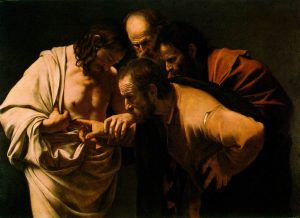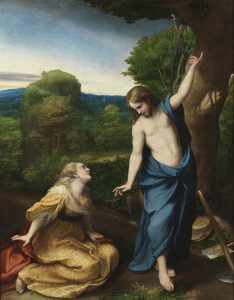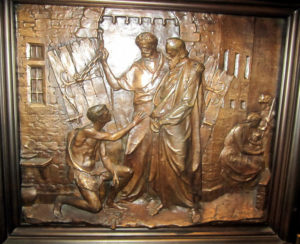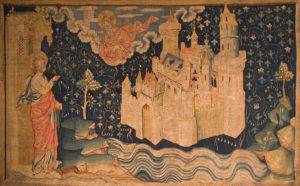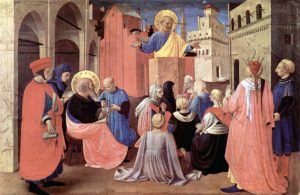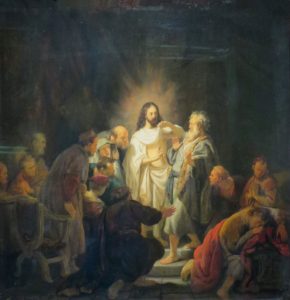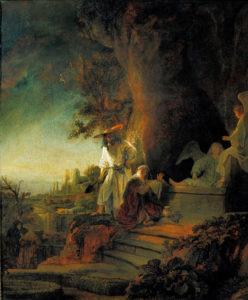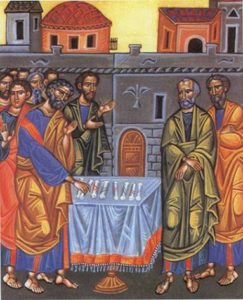Thoughts on Sunday’s Lessons for April 26, 2020
First Reading: Acts 2:14a,36-41
We continue hearing themes of resurrection in our Eastertide readings this week.
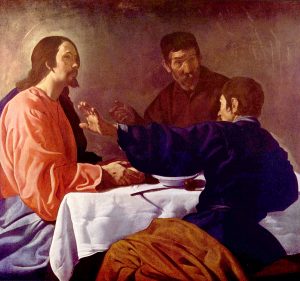
Supper at Emmaus (1618), oil painting on canvas by Diego Velázquez (1599-1660). Metropolitan Museum of Art, New York. (Click image to enlarge.)
In the first reading, after repeating the same introductory sentence that we heard last week, Peter has harsh words for his audience. He blames “the entire house of Israel” for crucifying Jesus, the Christ whom God has now made Lord and Messiah. Like the angry references to the Jews in the Passion Gospels, modern Christians must read this kind of accusation, which recurs throughout Acts, in its historical and cultural context. At the time of this writing, there was extreme tension between early Christians and Jews after the destruction of the Temple. In our time, we must erase any echoes of anti-Judaism, and hear instead in this passage God’s gracious promise that forgiveness through the gift of the Holy Spirit is available to all.
Psalm: Psalm 116:1-3, 10-17
Consider this during this time of pandemic fear: This Psalm of thanksgiving expresses the Psalmist’s gratitude for recovery from illness. It is vivid in its description of the anguish of severe sickness and the fear of death; but then it turns and portrays the transforming joy that comes with recovery. We hear a theme of resurrection here, too, the joy that comes with escaping the darkness of the underworld to win the bounty of salvation. In the joy of restored life, we thank God for loosing us from the snares of death.
Second Reading: 1 Peter 1:17-23
In the first of the two letters written in Peter’s name, we can glean some insight into the efforts of the church around the end of the first century to discern the meaning of Jesus’ death and resurrection in our lives. In these verses the author is working out the significance of Jesus’ death as ransom for our sins, a theological quest that has continued from the early church through the Middle Ages and even to modern times. The question remains theologically unresolved, but one point is clear: Through Christ we trust in God. Through Christ we love one another. And through Christ we gain life in the enduring word of God.
Gospel: Luke 24:13-35
What a confusing time the first Easter must have been for those who loved Jesus! This Gospel passage, like last Sunday’s reading about Jesus entering the locked room where the disciples were hiding, suggests that they remained uncertain, uneasy, even scared. “We had hoped that he was the one to redeem Israel,” two of them told the stranger on the road to Emmaus, their phraseology suggesting that this hope, once alive, now was gone. Nor does it seem that they believed the women, any more than Thomas had believed the others, until they saw for themselves. But the traveler, Jesus, revealed himself in the breaking of the bread, just as we discover Jesus when we gather at the Eucharistic table.

